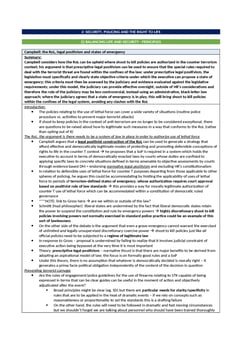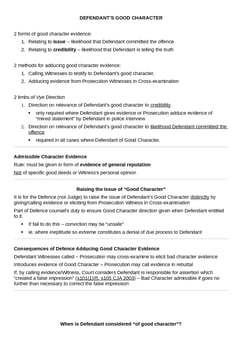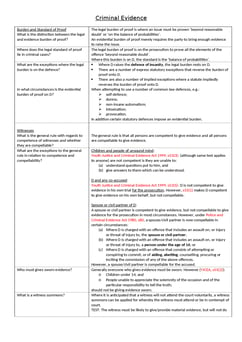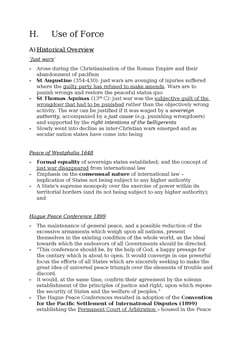R v Horncastle [2009] UKSC 14; [2010] 2 AC 373
Judgement for the case R v Horncastle
Table Of Contents
KEY POINTS
-
In exceptional cases, a domestic court may have reservations about whether a decision from the European Court of Human Rights adequately understands or accommodates specific elements of the domestic legal process.
In such situations, the domestic court has the option to deviate from the Strasbourg court's decision, provided it provides clear reasons for doing so.
This approach allows the Strasbourg court the opportunity to reevaluate the particular aspect of the decision in question, fostering a constructive dialogue between the domestic and Strasbourg courts.
This case represents one such instance where this approach is appropriate.
On the applicability of Al-Khawaja: it did not establish that the "sole or decisive" test introduced in that case should be applied mechanically in the UK, as the domestic legal system already had mechanisms to ensure fairness.
FACTS
The appellants were convicted of serious criminal offenses in trials where the victims did not testify. In one case, the victim had passed away, and in the other, the victim had fled in fear before the trial. Instead, statements from the victims were admitted as evidence under Section 116 of the Criminal Justice Act 2003 and presented to the jury.
The appellants argued that their convictions relied "solely or to a decisive extent" on these witness statements, and this violated their right to a fair trial under articles 6(1) and 6(3) of the European Convention on Human Rights.
These articles guarantee the right to a fair and public hearing and the right to examine witnesses against them. The Court of Appeal had previously rejected the appellants' appeals, stating that the fairness test established by the European Court of Human Rights in the Al-Khawaja and Tahery v United Kingdom case did not determine the outcomes in these appeals.
JUDGEMENT
Appeal dismissed. The appellants’ trials were deemed fair.
COMMENTARY
R v Horncastle is a pivotal case that addressed the admissibility of hearsay evidence in criminal trials and its potential impact on the right to a fair trial.
The decision reaffirmed the significance of the common law and the existing safeguards in ensuring fairness in the UK's criminal justice system, while recognizing the potential for exceptional circumstances where hearsay evidence might pose a challenge to a fair trial.
For Further Study on R v Horncastle
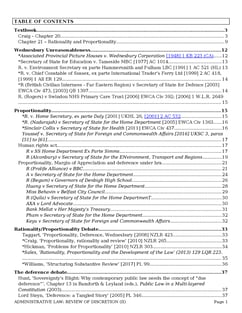
Administrative Law notes fully updated for recent exams at Oxford an...
Need instant answers? Our AI exam tutor is here to help.
Ask questions 🙋 Get answers 📔 It's simple 👁️👄👁️
Our AI is educated by the highest scoring students across all subjects and schools. Join hundreds of your peers today.
Get StartedSimilar Cases
Related Product Samples
These product samples contain the same concepts we cover in this case.
